#Industry
Overcapacity In Europe: It's Worse Than We Thought
A report by Alix Partners, an automotive consulting firm, spells out what we at TTAC have been saying for some time; Europe’s auto industry is facing a major crisis of overcapacity, but no steps have been taken to remedy the matter.
How To Succeed At Automotive Journalism: A Primer For Neophytes
Since I started my career, I’ve been asked countless times, whether by acquaintances, friends, reader emails and just about every male with a pulse and a drivers license; how do I get your job (or, for our readers, how can I start writing for TTAC). I’ve seen a few lame, generalized articles about “how to be an automotive journalist”, but this one will tell you how to actually make a career out of it, rather than simply spending your days as an “independent blogger” while working at the Verizon store to pay the bills.
Industry: Optimism Is Back, But Only A Little At A Time
Optimism sure ain’t what it used to be. Introducing its latest survey of auto industry executives [ PDF], Booz & Co. proclaims that “optimism is skyrocketing,” and that “a new wave of optimism is overtaking the U.S. auto industry.” They’re not wrong, but for those used to the pre-bailout days of unabashed optimism dressed up as analysis, the “new optimism” is remarkably guarded. And it’s all relative to the pessimism that was beginning to set in when the industry began to realize that the “old optimism” was wildly at odds with the slow-motion market recovery.
So, just how optimistic is the “new optimism”? Which companies have the most reason for optimism? What do industry executives worry about most? When do they expect a Chinese invasion? The answers to these questions and more after the jump.
German State PM Tells Opel "Go West, Young Man!"
Exports have been mentioned before as a way to help improve Opel’s precarious near-term fortunes, and now one of Germany’s state-level Prime Ministers is throwing his support behind the export plan.
Ontario Government Ready To "Invest" In The Auto Industry
A day after a government commissioned report about the auto industry surfaced, Ontario Premier Dalton McGuinty told reporters that he would seek ways to help assist the auto industry as a thank you to the province’s “…leading goal scorer”.
Blind Spot: Digging Deeper Into GM's Fuel Economy Record
Old habits die hard. Whether it’s GM’s desire to slice-and-dice its fuel economy achievements to make them look better than they are, or our instinct to correct the record, it’s all just a little bit of history repeating.
Blind Spot: It Ain't Easy Being Green
When government, media and industry agree that a trend exists, it’s generally taken as fait accompli. After all, these three institutions wield immense cultural power, and together they are more than capable of making any prophecy self-fulfilling. But there’s always a stumbling block: acceptance by the everyday folk who actually make up our society. And when a trend is taken for granted, the ensuing rush to be seen as being in touch with said trend often generates more heat than light. Such is the case with the trend towards “green cars.” Few would deny that they are “the future,” but at the same time, there’s been precious little examination of how this future is to be realized. And when such examination does take place, it tends to raise more questions than it answers.
Time To Start The Suzuki America Death Watch?
Kizashi apparently means “omen”, sign or “warning” – it also means “something great is coming”, but the only thing on Suzuki’s American horizons is a bleak future.
Saddled With Social Costs, French Car Makers Bid Adieu To Domestic Manufacturing
A Financial Times report on the “de-industrialization” of France (sub. required), and the erosion of the country’s manufacturing base took a trip to a Peugeot factory, where the new 208 is leaving the lines and gearing up for a big launch. Peugeot has been suffering financially in recent years, amid a backdrop of a declining manufacturing industry, some employees are blaming the heavy burdens of France’s welfare state.
Mazda Looking To Sell Baseball Team, Other Assets As Finances Worsen
The scuttlebutt on Mazda is that Japan’s favorite independent automaker is in the toilet, having to shed jobs in America and assets in Japan just to stay afloat. While Mazda may be strapped for cash, their less-than-liquid holdings, like a baseball team and $5 billion worth of land, don’t look so bad.
How I Got Banned From Two Press Car Fleets
(Today’s guest post comes from Peter Dushenski. While most journalists love to brag about what kind of press cars they can get access to, Peter is here to share the story of how he got banned from from fleets. It’s one you won’t often hear. – DK)
“Also I must inform you that I will no longer be supplying you with Toyota or BMW vehicles.”
That was it.
That was the very last line in an e-mail I received last week from The Press Fleet Manager. No explanation followed. Not even a sign-off remark. No “Sincerely”, no “Regards”. No frivolity.
Chrysler Dealers Who Regained Their Franchises Back To Square One
C hrysler dealers who were terminated and then re-instated have been left out in the cold, after a federal judge ruled that the Federal Appropriations Act, a 2010 law that opened the door for dealers to regain their franchises via arbitration, did not overrule state dealer laws that deal with dealer markets.
Italy Seizes Gaddafi's Stake In Fiat
A year ago nearly to the day, I was investigating the connection between Libyan dictator Muammar Gaddafi and Fiat. With an American-led intervention in Libya underway, Reuters had reported that a Wikileaked State Department document revealed that the Libyan Government owned a two-percent stake in the automaker Fiat as recently as 2006. When I contacted Fiat’s international media relations department for comment, I received this response:
Dear Mr Niedermeyer,
Further to your email, I would mention that the Reuters report you refer to is incorrect. As too are other similar mentions that have appeared recently in the media concerning the LIA’s holdings in Fiat.
The LIA sold all of its 14% shareholding in Fiat SpA in 1986 – ten years after its initial stake was bought. It no longer has a stake in Fiat SpA.
I trust that this clarifies the matter.
It didn’t, actually. In fact the matter remained as clear as mud to me until just now, when I saw Reuters’ report that Italian police have seized $1.46 billion worth of Gaddafi assets, including “stakes in… carmaker Fiat,” under orders from the International Criminal Court.
Blind Spot: Catching Up With Chrysler
With the government still waiting to see how much it will get out of its equity in General Motors, The General seems to be attracting more of the media commentary than Chrysler these days. And not without good reason: GM saw the greatest drop in market share last month of any Detroit automaker, its government-hyped Volt is flopping, Opel continues to be an open sore and it can’t help but flaunt its cluelessness about youth marketing. But interest in GM’s shortcomings seems to be driven by little more than election-year political implications, which Chrysler was able to avoid by borrowing cash and misleadingly claiming to have squared up with the American taxpayer. After all, Chrysler is facing just as many challenges as GM, if not more. And despite having formally closed the bailout chapter of its history, Chrysler’s performance still bears on the decision to rescue America’s weakest major automaker.
Blind Spot: Obama No Longer Dreams Of Electric Cars
“The electric things have their life too. Paltry as those lives are.”
Phillip K. Dick, Do Androids Dream Of Electric Sheep?
At the High School I attended, progress reports were never a good thing. Halfway through each term, students who were averaging a D or lower would receive a print-out of their grade accompanied by a line from the teacher explaining how the miscreant in question was failing to live up to expectations. True to form, the White House’s just-released “One Year Progress Report” [ PDF] on President Obama’s “Blueprint For A Secure Energy Agenda” includes some devastating evidence of abject failure. But unlike my post-progress report conversations with the parental stakeholders, Obama has a lot more to explain to voters than a simple “insufficient homework turned in.”



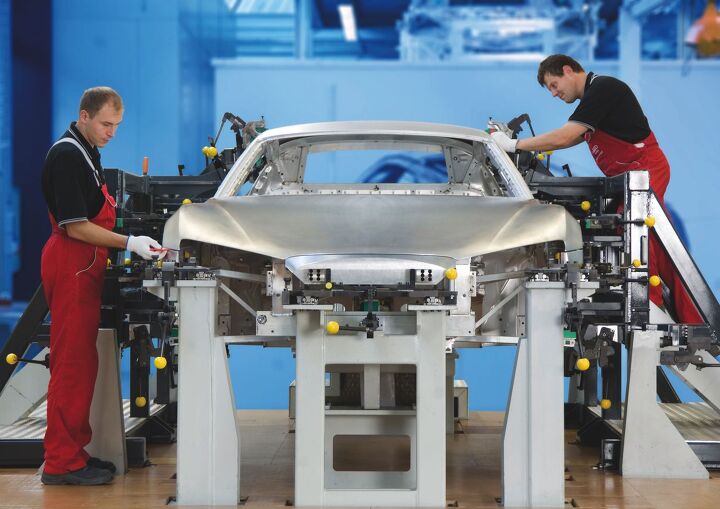


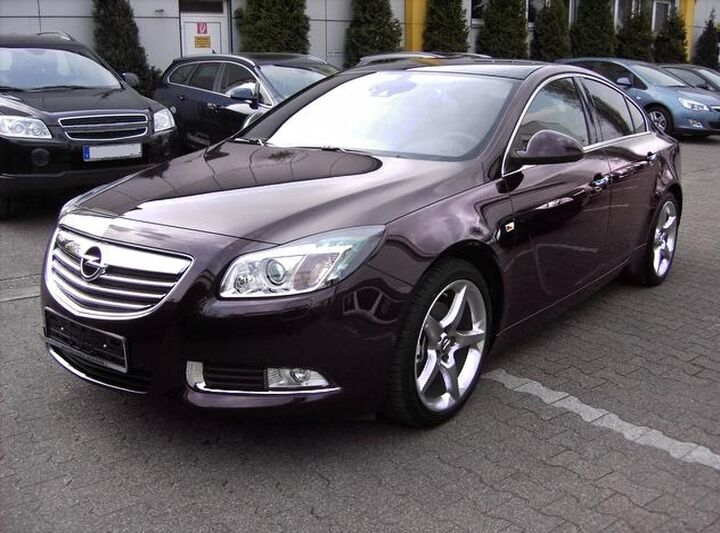



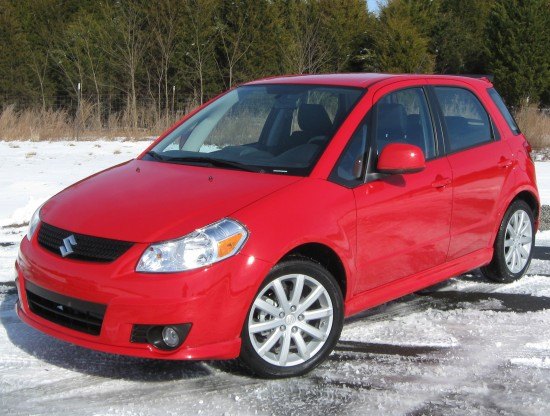
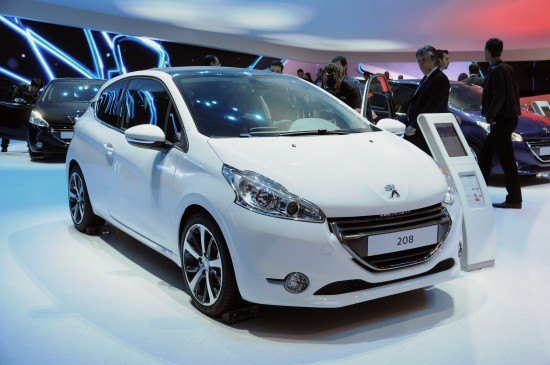



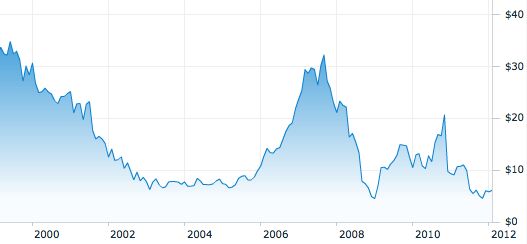











Recent Comments